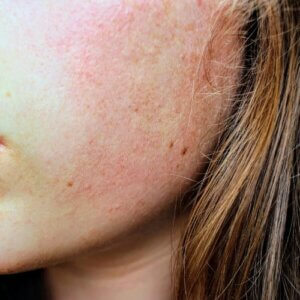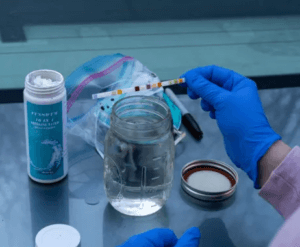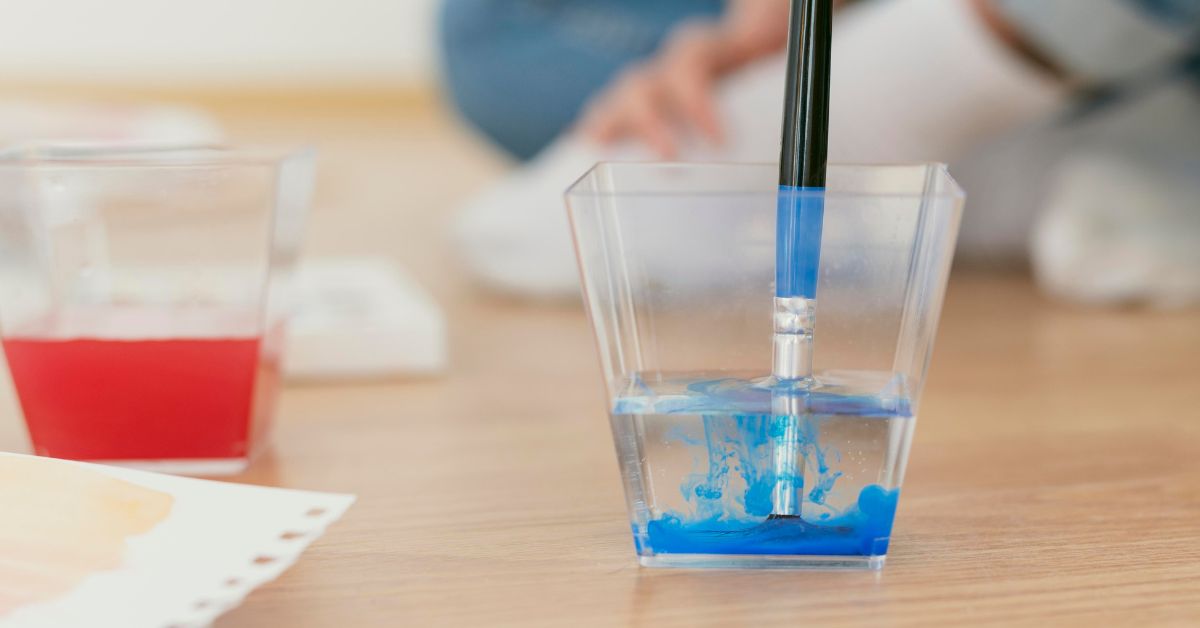Vinyl chloride is a toxic chemical that can cause serious health problems, including cancer, liver disease, and nervous system damage. It is mainly used to make polyvinyl chloride (PVC), a plastic material widely used in pipes, packaging, and other products. Vinyl chloride can get into your drinking water from various sources, such as industrial discharge, chemical spills, leaching from PVC pipes, and air pollution.
In this article, we will answer the question of can vinyl chloride be filtered out of water, how it affects your health, how to test for it in your water, and how to remove it using different methods.
What Is and Where Does Vinyl Chloride Come From?
Vinyl chloride is a colorless gas with a sweet odor, often handled in liquid form. It is not naturally occurring and is artificially produced as a byproduct when substances like tetrachloroethylene, trichloroethylene, and trichloroethane break down. The most common use of vinyl chloride is in making PVC, which is used in packaging materials, wire, cable coatings, pipes, and other plastic products. There are a few other uses of vinyl chloride, such as to make ethylene, acrylic acid, propylene, and some pharmaceutical drugs.
Vinyl chloride can enter your water supply from various sources, such as:
- Industrial discharge from plants that use vinyl chloride in their manufacturing processes.
- Chemical spills and leaks from storage tanks, pipelines, or vehicles that contain vinyl chloride or its precursors.
- Leaching from PVC pipes that are used to distribute water or wastewater.
- Air pollution from vinyl chloride emissions can dissolve in rainwater or snow and contaminate groundwater or surface water.
The Environmental Protection Agency (EPA) has set a Maximum Contaminant Level (MCL) of 2 parts per billion (ppb) for vinyl chloride in drinking water. This means that the concentration of vinyl chloride in your water should not exceed this limit. However, some experts suggest that even lower levels of vinyl chloride may pose health risks.
How Does Vinyl Chloride Affect Your Health?
Vinyl chloride is a known human carcinogen that can cause cancer in humans. The most common type of cancer associated with vinyl chloride exposure is liver cancer. Other types of cancer that may be linked to vinyl chloride include brain, lung, kidney, and blood cancers.
Vinyl chloride can cause other problems like lung cancer, brain cancer, and lymphoma.
In addition to cancer, vinyl chloride can also cause other health problems, such as:
- Liver damage and disease
- Nervous system damage and impairment
- Immune system suppression and infection
- Reproductive system disorders and birth defects
- Skin irritation and rashes

The health effects of vinyl chloride depend on several factors, such as the amount and duration of exposure, the route of exposure (inhalation, ingestion, or skin contact), the individual’s susceptibility and genetic makeup, and other chemicals or diseases.
Can Vinyl Chloride Be Filtered Out of Water?
Yes, vinyl chloride can be filtered out of water through various methods such as activated carbon filtration, reverse osmosis, ion exchange resins, and aeration. These methods effectively reduce the concentration of vinyl chloride, ensuring the removal of this potentially hazardous chemical compound from water sources, thus safeguarding public health and water quality.
How to Remove Vinyl Chloride From Water?
If you suspect your water may be contaminated with vinyl chloride, you should avoid drinking or cooking until you confirm its quality. You can test your water for vinyl chloride by sending a sample to a certified laboratory or using a home test kit that detects volatile organic compounds (VOCs).

If your water contains more than 2 ppb of vinyl chloride, you should take steps to remove it from your water. Several methods can effectively reduce or eliminate vinyl chloride from water, such as:
1. Activated Carbon Filtration
These filters use activated carbon to adsorb organic contaminants like vinyl chloride from water. They can be installed at the point-of-entry (POE) to treat the whole house water supply or at the point-of-use (POU) to treat specific faucets or appliances. Activated carbon filters require regular maintenance and replacement to ensure their effectiveness.
2. Reverse Osmosis
These systems use a semi-permeable membrane to filter out impurities from water. They can remove up to 99% of VOCs like vinyl chloride from water. They can also be installed at the POE or POU level. Reverse osmosis systems require high water pressure and produce wastewater as a byproduct.
3. Water Distillers
These devices use heat to vaporize water and then condense it back into liquid form. They can remove almost all contaminants from water, including VOCs like vinyl chloride. They are usually used at the POU level to produce small amounts of purified water. Water distillers require electricity and may alter the taste and pH of water.
4. Ion Exchange Resins
Ion exchange resins are designed to remove specific ions or compounds from water selectively. In the case of vinyl chloride removal, ion exchange resins with an affinity for chloride ions can effectively reduce the concentration of vinyl chloride in water. This method is often used with other treatment processes for optimal results.
5. Aeration
Aeration involves exposing water to air, allowing volatile organic compounds like vinyl chloride to escape into the atmosphere. While this method may not eliminate vinyl chloride, it can significantly reduce its concentration in water. Aeration is often used as a pre-treatment step before employing other filtration methods.
6. Granular Activated Carbon (GAC)
Granular Activated Carbon (GAC) filtration is a variant of activated carbon filtration. In this method, the activated carbon is granular, allowing for better contact with the water. GAC filtration can effectively remove vinyl chloride and other organic contaminants, making it a popular choice for water treatment plants.
Effectiveness and Considerations
The effectiveness of vinyl chloride removal methods can vary based on several factors, including the initial concentration of vinyl chloride, the water’s pH level, and other co-contaminants. Therefore, it is essential to conduct water quality assessments and consult with water treatment experts to determine the most suitable approach for a specific situation.
Conclusion
In the quest to ensure safe and clean drinking water, the removal of vinyl chloride plays a vital role. Various filtration methods can effectively reduce vinyl chloride concentrations, such as activated carbon filtration, reverse osmosis, ion exchange resins, and aeration. However, the choice of method should be made after careful consideration of water quality and specific treatment requirements.
Remember that the effectiveness of vinyl chloride removal methods may vary, and it is crucial to consult with professionals in the field to determine the best approach for your specific needs. By taking proactive measures to address vinyl chloride contamination, we can contribute to improving water quality and protecting public health.


Very interesting subject, thanks for putting up.Money from blog